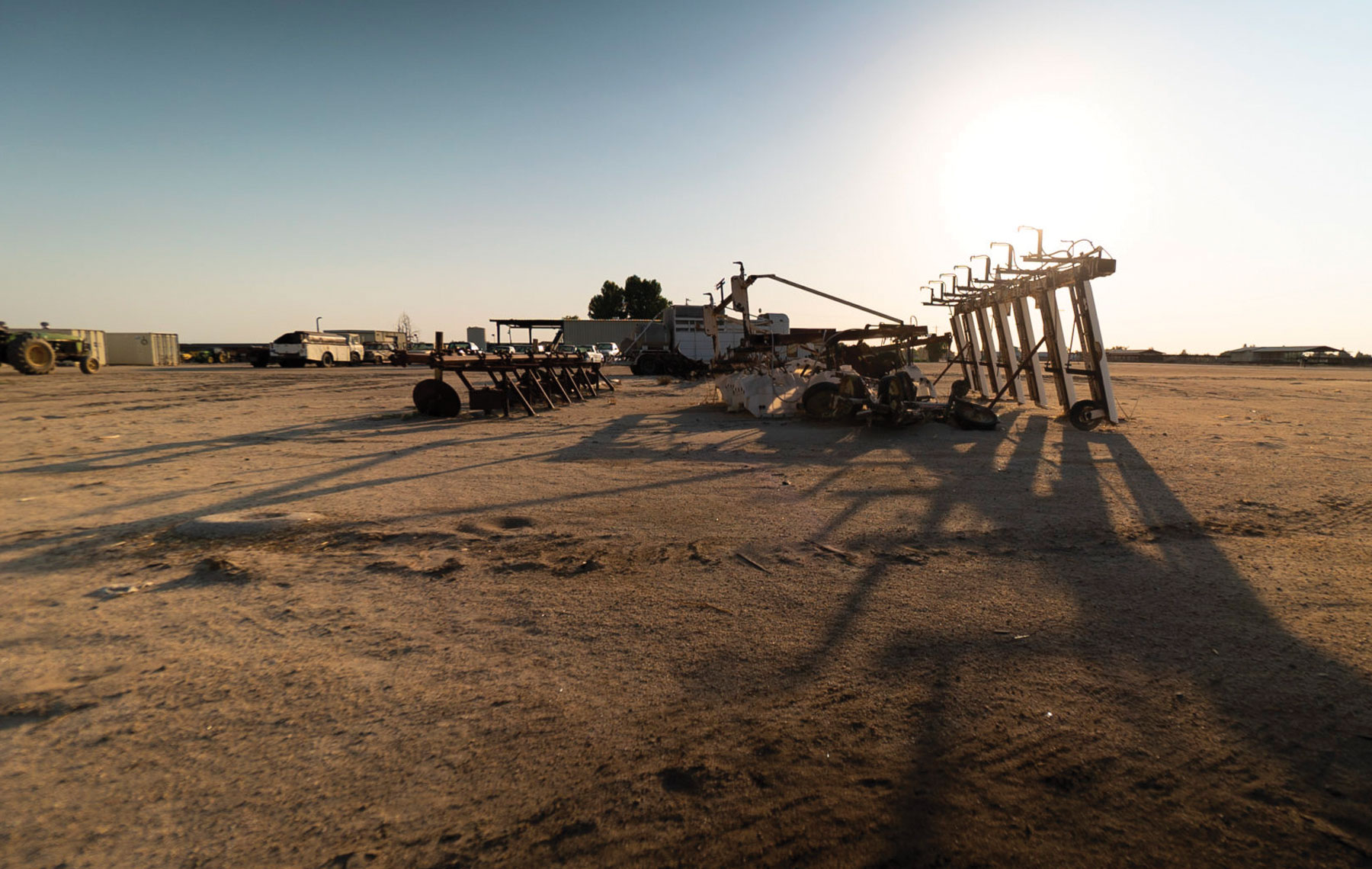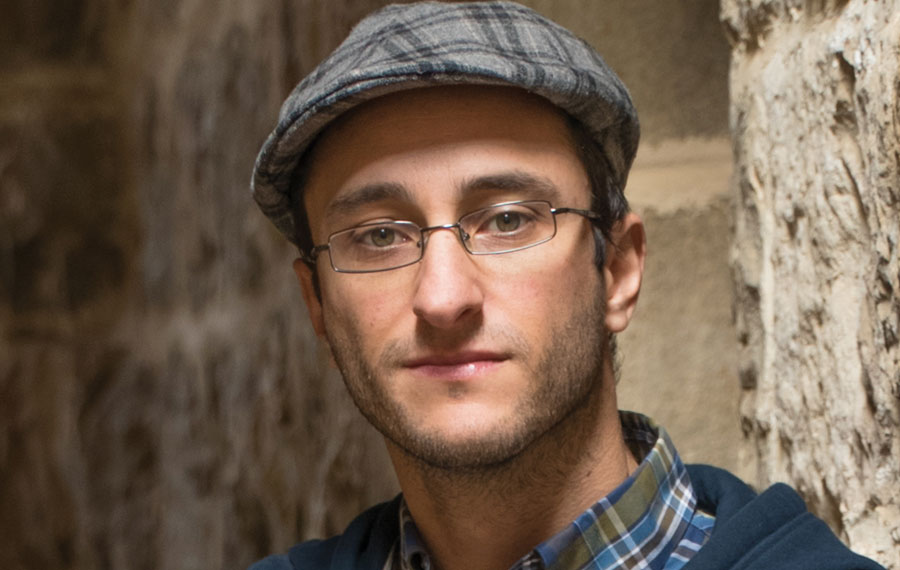

Even on the heels of California’s historic drought, water use has steadily returned to pre-drought levels, particularly in affluent Southern California communities. In response, Gov. Jerry Brown signed two bills into law — SB 606 and AB 1668 — earlier this year, requiring cities and water districts to set permanent water conservation rules. Cities, water districts and large agricultural water districts now must meet strict annual water budgets, facing fines of $1,000 per day if they don’t meet them, and $10,000 a day during drought emergencies.
Cultural differences aside, Israel and California have many similarities — chief among them an arid Mediterranean climate, topography, seawater access and a wetter north supplying a drier south. Aided by strong trade relations, Sacramento has turned to Jerusalem for drought-management solutions, and private-sector partnerships continue to materialize.
In 2014, Brown and Israeli Prime Minister Benjamin Netanyahu signed an agreement to facilitate joint projects and research in water conservation and agricultural technology. The following year, Israeli desalination giant IDE Technologies opened the Carlsbad desalination plant just north of San Diego, the biggest facility of its kind in the Western hemisphere. It produces more than 50 million gallons of water per day, supplying San Diego County with 7 percent of its potable water needs.
California-Israel water partnerships make sense, perhaps more than with any other U.S. state, according to Guy Gutterman, trade officer and director of business development for the Israel Economic Mission of the West Coast.
“When I talk to the state of Washington on this topic, they just tell me they have no reason to be interested,” Gutterman told the Journal. “I hear that a lot. Not in California.”
Part of Israel’s Ministry of Economy, the Israel Economic Mission of the West Coast facilitates trade and investment between the Western United States and Israel. Forty similar branches exist around the world, including four stateside. Gutterman covers the water and agriculture sectors across 17 states.
“We collaborate with our partners, who are Israeli industry startups or rising stars in the water and agriculture sectors, anyone in that ecosystem,” Gutterman said. “We connect them with large corporations for partnerships, utilities, municipalities, venture capital firms — whoever’s interested in Israeli tech. We provide the avenues to partner with them, whether that’s participation in conferences or consumer electronic shows. What’s good is the Israeli water brand is helping us and them gain access, especially in California.”
Gaining access is a start in a heavily regulated California water distribution system where success is hard to measure, Gutterman said. Bringing Israeli private-sector water innovation to California, no matter how effective, isn’t as simple as it might sound.
Israel has one water authority — Mekorot — that supplies Israel with 90 percent of its drinking water and operates a cross-country supply network dubbed the National Water Carrier. California has more than 400 water districts, thousands of water agencies, complicated jurisdiction laws, and strict oversight and regulation.
“There’s a lot of blurring of the lines,” Gutterman said. “That’s why privatization and innovations that come with it are having trouble gaining a foothold. It’s a California industry not known for its innovation. It’s not Google, where you have departments dedicated to innovation.”
“While this generation might not be able to shift the global consciousness, really, if we want to save the world, so to speak, we have to focus on the next generation.” — Micah Smith
Municipal utilities can be reticient to invest in innovation because doing so puts taxpayer dollars at risk.
David Nahai, former head of the Los Angeles Department of Water and Power (LADWP), the largest municipal utility in the U.S. with more than 4 million residents, didn’t mince words when speaking with a Journal reporter about those challenges.
“At LADWP, we had our mantra: We don’t want to be first,” he said. “The utility is accountable to its ratepayers, its governance structure, to City Council members. So there is a responsibility to the public that is taken very seriously, and that brings with it a reticence about taking gambles with taxpayer money. And I think emerging companies that want to do business with entities like LADWP need to be cognizant of that.”
Like a herd of wildebeest pondering a river crossing, one must lead and the others may follow. California, and the U.S. as a whole, is a fragmented water marketplace with more than 56,000 water agencies. In California alone, there are thousands, ranging from miniscule mobile-home parks to Nahai’s former agency. There are also more than 900 public wastewater treatment plants in operation statewide. The potential for shouldering risk on the part of utilities is compounded by the difficulty water and agricultural technology companies face in navigating how to market products in such tricky terrain.
Still, Gutterman and Nahai can tout success stories. Nahai, now an environmental lawyer, activist and private-sector water consultant, serves on various boards, including the Los Angeles Cleantech Incubator (LACI), a nonprofit with a downtown campus funded in part by LADWP that helps clean-technology companies and other entrepreneurs accelerate the commercialization of new products. Nahai has long been a proponent of engaging with Israeli companies, leading research trips to Israel for California leaders and lawmakers during his LADWP tenure.
“That was always done with the thought of increasing this collaboration and exchanges of ideas between California and Israel, particularly with respect to the water sector,” Nahai said. “In terms of progress, there has been a tremendous amount, but I think we still have a ways to go in terms of increasing the integration of Israeli water technologies in the California water picture.”
Several Israeli companies have benefited from LACI’s offerings. That and other resources, such as entertaining joint ventures or subcontract agreements with entrenched market players helps Israeli companies gain an initial foothold. A prime example is IDE and the partnership it entered with Poseidon Water, an American company, to make the Carlsbad desalination plant a reality.
“The opportunities and the demand are so rich and expansive that Israeli companies mustn’t be deterred in bringing their capabilities to California.” — David Nahai
Even in “Sustainable Nation,” Israeli startup Phytech is shown making inroads with its products that conduct direct plant sensing — enabling farmers to improve decision-making, optimize production and reduce risk. But that progress often comes with one farmer at a time. Starting small, getting involved with pilot programs and proving the value of Israeli tech is often a part of the journey.
Also in the film, Omer Guy, Phytech’s chief agronomist, brings his advanced algorithms to an almond farmer in the Central Valley. The plant sensors monitor the breathing — yes, breathing — of crops, reducing farmers’ guesswork in how to distribute water, a terribly competitive resource in the state’s agricultural hub.
After incorporating Phytech sensors, the almond farmer in the film increases his crop yield and reduces his water use by 300 gallons per acre. Water for agricultural use accounts for 40 percent of water consumption across California. Imagine a landscape where that type of tech is instituted statewide.
“The opportunities and the demand are so rich and expansive that Israeli companies mustn’t be deterred in bringing their capabilities to California,” Nahai said.
James Perry and Utilis, the Israeli company he serves as vice president of business development, remain steadfast in their commitment to the California water marketplace. They even opened offices in San Diego. In 2013, the company’s chief technology officer and co-founder was working with a grant from NASA to search for water on Mars and Venus using remote sensing, a satellite-based technology that sent microwave transmissions long distances through space and cloud-covered gasses. Now, Utilis uses that same deep-space tech to help cash-strapped utilities improve leak detection and maintenance.

Photo courtesy of Jerusalem University
“There are over a quarter of a million breaks in U.S. pipes alone, and hundreds of thousands of gallons of water are lost every single year,” Perry told the Journal. “To put that in perspective, there’s enough water lost in the U.S. piping systems to flow over Niagara Falls for a year. It’s just staggering.”
It all points to a vicious cycle. Over 20 percent of power generated across California goes into water systems that lose vast quantities of water for urban use and agriculture. Metal and PVC piping wasn’t meant to last as long as it has been deployed, Perry said. Utilities are scrambling, allocating maintenance services only when leaks are reported.
“Most utilities are just overwhelmed with the number of breaks and work orders,” Perry said. “That’s where we come into play, with informed zoning technology that tells them where leaks are coming in instead of blindly waiting for them to surface and trying to go through every single inch of the system. That often takes them to places where they don’t have leaks. We send them to zones where they do have leaks. It’s more efficient and utilizes limited resources. It’s cost effective where the only other options are heavy capital expenditures and you don’t need to do anything special with us. Our services will do it.”
Perry cites some of the same reasons Gutterman and Nahai bring up as barriers to entry in the California marketplace. He offered a simplification in the vein of Nahai’s old LADWP mantra. “I think what it really boils down to on the side of utilities,” Perry said, “are you willing to bet your career on adopting this new tech?”
He also mentioned special interest groups such as metal companies responsible for outdated piping opposing change in uprooting the system and reporting water losses. However, increased transparency through legislative measures, like a recently signed California Senate bill that, for the first time, will require public utilities to report water losses, may help turn the tide.
“It’s going to take more innovation on the federal and state level so that utilities are being held accountable and the price of water meets its value. “The fact is it hasn’t, and water has been horribly undervalued,” Perry said.
Cultural differences aside, Israel and California have many similarities — chief among them being a shared arid Mediterranean climate, topography, seawater access and a wetter north supplying a drier south.
Still, Utilis is being used to analyze thousands of miles of piping in Northern California with the East Bay Municipality Utility District based in the Oakland area, and in Chattanooga, Tenn.; Atlanta; Washington, D.C.; and Cleveland.
Utilis also has just completed a 12-month pilot program with the city of Duarte, which borders the jurisdiction of LADWP, and will publish results on cost savings, power generation savings and leaks detected early next year.
The elephant in the room is, of course, desalination and the drawing from a seemingly limitless source — the Pacific Ocean. Even Carlsbad’s desalination plant, though a success on many levels, presents ample legitimate environmental concerns, namely the issue of brine disposal. It also required heavy upfront investment and the water it produces costs at least double compared with other sources.
“That’s exactly why we have so few [desalination plants],” Nahai said. “Water is a very local issue. It’s a global crisis, but solutions have to be found locally. I firmly believe Israel had no choice but to turn to the Mediterranean, and it has done so with enormous success. But Israel did that only after achieving very enviable rates of conversation, after recycling 90 percent of wastewater and exhausting many other avenues. We in Los Angeles haven’t exhausted those avenues. We can do better with conservation, wastewater recycling, aquifer reclamation, storm water recapture and various steps I’ve outlined throughout my career. We haven’t yet fully explored them.”
But Nahai won’t rule out desalination as the eventual answer to California’s water problems.
“It may be that, in the future, we’ll have no choice but to exploit the Pacific, as Israel was left no choice but to turn to the Mediterranean. But that day, for us in Los Angeles, is not today.”
In “Sustainable Nation,” Israeli startup Phytech is shown making inroads with its products that conduct direct plant sensing — enabling farmers to improve decision-making, optimize production and reduce risk.
Until that day comes, Smith said he’s hopeful Israeli tech will continue to find its way into his home state.
“As a Californian and Israeli, it feels like the perfect match. It’s also good diplomacy. It definitely tickles my Zionist funny bone to see Israeli tech making its way there, helping solve the California water crisis.”
Smith did offer a tongue-in-cheek downside to Israeli assistance.
“It will mean more Israelis moving there to work in the water sector,” he said, laughing. “Californians should be ready for that.”
Read More: How Israel Is Helping the Worldwide Water Shortage





















 More news and opinions than at a Shabbat dinner, right in your inbox.
More news and opinions than at a Shabbat dinner, right in your inbox.